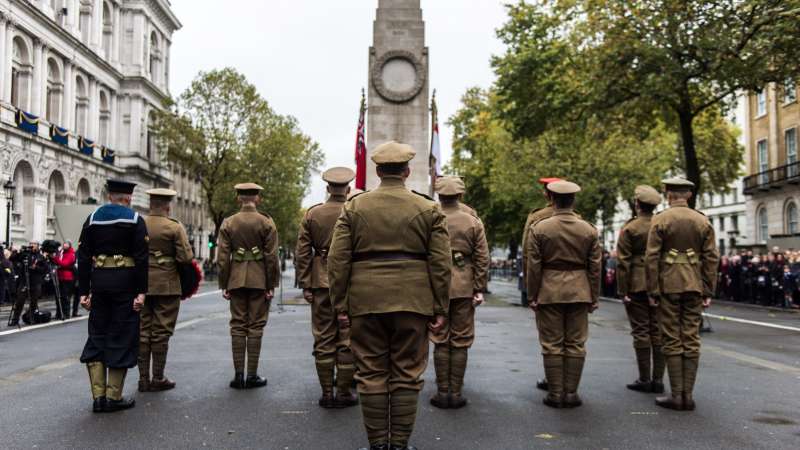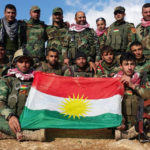International Remembrance – Adam Warren
Armistice Day, known in the UK also as Remembrance is the 11th of November and marks the end of the First World War, the time Armistice came into effect at 11am on the 11th day of the 11th month 1918. Most nations around the world have national days to remember their ordinary citizens who did the extraordinary and went forward to fight for their national values and often lay down their life for their nation. All commonwealth nations and most European nations, especially France and Belgium join the United Kingdom for International remembrance on 11th November every year, as do many nations who had involvement in the First and Second World Wars, however many other nations have other days, times and occasions for honouring sacrifice:
New Zealand and Australia
Alongside Remembrance Day on the 11th , which the Australian and New Zealand nations nark on the 11th, regardless of the day of the week, both nations also mark Anzac Day on April 25 commemorates New Zealand and Australia’s servicemen and women who have died. The day, which stands for “Australian and New Zealand Army Corps,” falls on the anniversary of the landing at Gallipoli, the first major military action by both forces in the First World War in a campaign that would fuel the building of a national consciousness in both countries.
Turkey
Turkey observes Martyrs’ Day on March 18, the anniversary of a major victory against the Allied Powers during the Gallipoli Campaign. The day is used today to commemorate Turks who have died for the country.
Nigeria
Nigeria formerly observed Armed Forces Remembrance Day on Nov. 11 as a member of the commonwealth. But it has since moved the date to Jan. 15, 1970 to commemorate the end of the country’s civil war.
Italy
Italy observes National Unity and Armed Forces Day on November 4, the date Austria-Hungary surrendered to the Italians in 1918. The day is accompanied by ceremonies commemorating members of the armed forces killed in action.
Barbados
In Barbados, Remembrance Day is not a public holiday. It is recognised as 11 November, but the parade and ceremonial events are carried out on Remembrance Sunday. The day is celebrated to recognise the Barbadian soldiers who died fighting in the First and Second World Wars. The parade is held at National Heroes’ Square, where an interdenominational service is held. During the main ceremony a gun salute, wreaths, and prayers are also performed at the war memorial Cenotaph at the heart of Heroes’ Square in Bridgetown.
Denmark
In 2009 the Danish government established Veterans’ Day with early events on 5 September where past and present members of the armed forces, who have done service in armed conflict, are remembered.
Netherlands
In the Netherlands, Remembrance Day is commemorated annually on 4 May. Throughout the country, military personnel and civilians fallen in various conflicts since World War II are remembered. The main ceremonies are at the Waalsdorpervlakte near The Hague, the Grebbeberg near Wageningen and Dam Square in Amsterdam. Two minutes of silence are observed at 8:00 pm. Remembrance Day is followed by Liberation Day on 5 May.
The Republic of Ireland
In the Republic of Ireland, Armistice or Remembrance Day is not nationally marked. In July there is a National Day of Commemoration for Irish men and women who have died in war. Nevertheless, Remembrance Sunday is marked by a ceremony in St Patrick’s Cathedral, Dublin, which the President of Ireland attends. During World War I, many Irishmen served in the British Army, but official commemoration of them (and other British soldiers) has been controversial.
The British Army was used to suppress the Easter Rising (1916) and fought the forces of the Irish Republic during the Irish War of Independence (1919–22). A very small number of people living in the Republic still enlist in the British Army, although the British Army is banned from recruiting there under the Defence Act 1954.
The Irish National War Memorial Gardens in Dublin is dedicated to the memory of the 49,400 Irish soldiers who were killed in action in World War I.
South Korea
South Koreans observe Memorial Day on June 6, the same month that the Korean War began, to honour servicemen and civilians who have died for their country. The nation holds a one-minute silence at 10 a.m.
The United States of America
As well as the 11th of November (The USA lost 116,516 in WWI, and 4 million Americans served in Europe) the USA mark Memorial Day or Decoration Day is a federal holiday in the United States for remembering the people who died while serving in the country’s armed forces. The holiday, which is currently observed every year on the last Monday of May, was held on May 28, 2018. Many people visit cemeteries and memorials, particularly to honour those who have died in military service. Many volunteers place an American flag on each grave in national cemeteries.
Two other days celebrate those who serve or have served in the U.S. military: Veterans Day, which celebrates the service of all U.S. military veterans and Armed Forces Day, a minor U.S. remembrance celebrated earlier in May, specifically honouring those currently serving in the U.S. military.
Germany
Volkstrauertag (German for “people’s day of mourning”) is a public holiday in Germany two Sundays before the first day of Advent. It commemorates members of the German armed forces and civilians who died in armed conflicts, to include victims of violent oppression. It was first observed in its modern form in 1952. Because of the relation to Advent, the date is the Sunday nearest 16 November, i.e. in the period from 13 November to 19 November.
The German government and Armed Forces do also lay wreaths at International Armistice Days, especially in former German colonies, such as Botswana as well as at service in Europe. This year, in Paris, German Chancellor Angela Merkel will represent her nation.
Germany has a sensitive relationship with Remembrance Day but nevertheless, should and does remember brave German service personal who gave their lives in the service of their nation in WWI and in modern conflicts, including Afghanistan, as well as the less recognised Second World War, which many Germans regard with great shame.
This video, curated by the BBC, provides an interesting perspective:
https://www.bbc.co.uk/news/world-europe-46144319
I am a Contributor for the RHS Bubble















Post Comment
You must be logged in to post a comment.